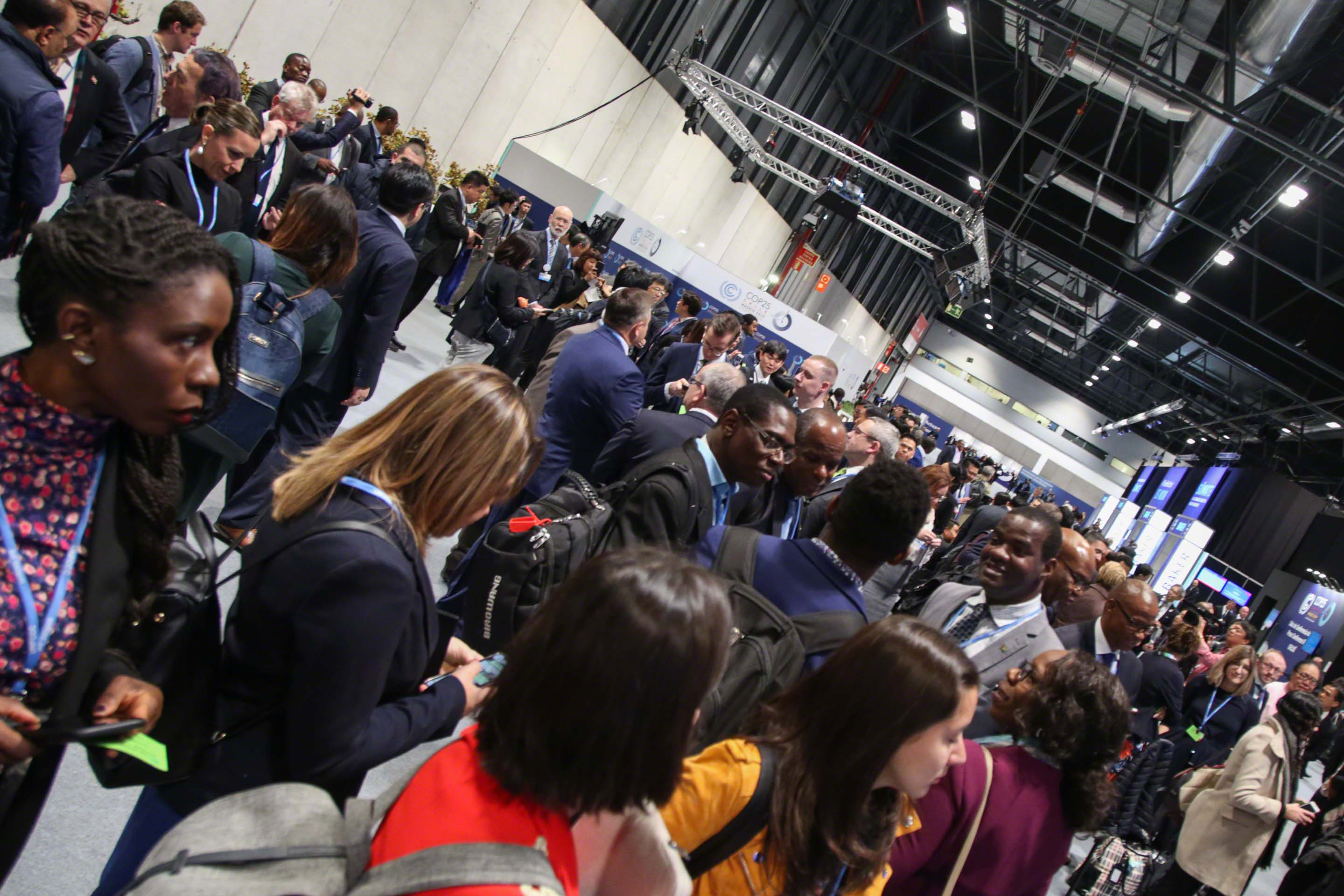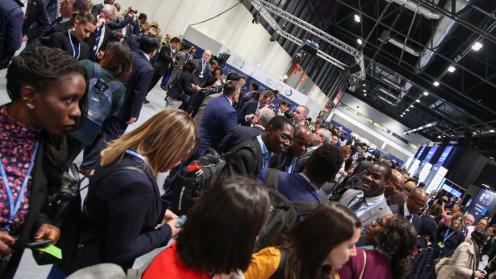Summary

On Tuesday, the Chile/Madrid Climate Change Conference transitioned into a more political mode. Ministers arrived with considerable work ahead of them, aiming to reconcile difficult issues and to raise the profile - and ambition - of the conference. After the subsidiary bodies’ late close in the early morning hours of Tuesday, several issues were left for consultations to be co-facilitated by ministers:
- Article 6 (market and non-market approaches) will be discussed in consultations led by Minister Barbara Creecy, South Africa, and Minister James Shaw, New Zealand;
- Review of the Warsaw International Mechanism for Loss and Damage associated with Climate Change Impacts (WIM) will be discussed in consultations led by Minister Simon Stiell, Grenada, and Minister Ola Elvestuen, Norway;
- Outcome decision of the conference will be discussed in consultations led by Minister Masagos Zulkifli, Singapore, and Minister Teresa Ribera Rodríguez, Spain; and
- Response measures will be discussed in consultations led by ministers, to be announced.
The COP Presidency will facilitate discussions on the periodic review of the long-term global goal, the Consultative Group of Experts (CGE), and gender.
Ministers around the venue were busy sharing statements in the high-level segment and at a ministerial dialogue on adaptation ambition. Opening the high-level segment, COP 25 President Carolina Schmidt set the tone for holistic discussions on climate action, stressing how climate change exacerbates existing inequalities and that climate action needs to be fair for all. Thanking youth activists, Minister Teresa Ribera Rodríguez, Spain, called on all “to be climate activists, and to do more.”
In the afternoon, the COP Presidency convened a high-level ministerial dialogue on adaptation ambition. One minister noted that “no country is safe” from the impacts of climate change, and all must therefore redouble adaptation efforts. Ministers from Japan, Botswana, Fiji, Uruguay, and the Netherlands, among others, presented on their countries’ efforts to build adaptation ambition, discussing: the use of nature-based solutions; climate finance for developing countries; and lessons learned.
The Marrakech Partnership for Global Climate Action held events throughout the day. Roundtables convened on circular economy principles in the construction and packaging sectors. Participants also discussed resilience and SDG 7 (Affordable and Clean Energy).
With many discussions now occurring at higher political levels, and behind closed doors, many delegates welcomed the break after an intensive first week. They also wondered how the many divides across the issues would be bridged.
For more details on the day’s negotiations and to hear what delegates said in the corridors, see our daily Earth Negotiations Bulletin (ENB).
